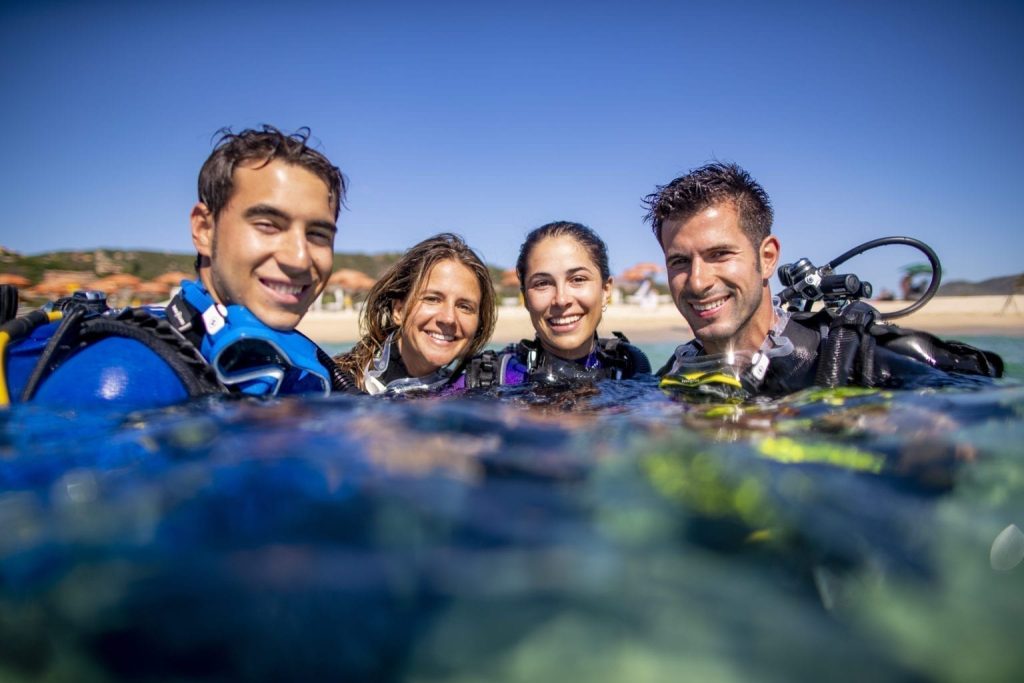
Do you have questions?
The minimum age for diving certification is usually 10 years old.
Parents or guardians of children under 18 years old must give their consent in writing.
While swimming skills are required, it is not necessary to be an expert swimmer. However, you must be comfortable in the water, able to swim 200m and float in the water for 10 minutes without the aid of a flotation device.
Diving with autonomous equipment is one of the activities with the fewest accidents per number of practitioners that exists. If it is carried out with the appropriate Instructor and/or Diving Centre it is a very safe activity.
No, it is one of the great myths of diving. In any of the diving activities or courses it is the first thing that is taught: how to compensate the ears so that they do not hurt at any time.
You cannot only dive if you are pregnant or suspect that you may be.
Because physiologists know little about the effects of diving on the fetus, the recommendation is that women avoid diving during pregnancy or if they are trying to become pregnant. Menstruation is usually not a problem.
Certain medical conditions, such as heart or respiratory problems, can pose risks to diving. You must sign a health declaration before diving; If you have any of the identified medical conditions, you must be authorised to dive by a qualified medical professional.
No, that is why the ideal is to do everything correctly and train thoroughly with Instructors and Diving Centres that will prepare you correctly and explain all the challenges that entails.
Your diving equipment includes an instrument that shows you how much air you have. You will learn to monitor it regularly, so it is very unlikely that you will run out of air while diving. However, if you run out of air, your buddy has an extra regulator (mouthpiece) that allows you to share a single air supply as you swim to the surface. There are other options that you will learn in your diving training.
No, they are different activities. In any discovery activity you do not learn or train diving fundamentals, but it is interesting for those who want to “try” before deciding to take a diving course.
Yes, we offer many beginner-friendly sites with calm waters, gentle currents and clear visibility. These sites provide a safe and enjoyable experience for those new to diving.
You must be at least 10 years old to obtain the Junior Open Water Diver certification.
Junior Open Water Divers ages 10 and 11 must dive with their parent or certified guardian or with a professional to a maximum depth of 12 meters. Ages 12 to 14 must dive with a certified adult. From 15 years old, the Junior certification is updated into a normal Open Water Diver certification.
Basic open water certification allows you to dive up to 18 meters (60 feet). More training and certifications are required for deeper dives.
With the necessary training and experience, the limit for recreational diving is 40 meters/130 Feet. Beginner divers stay at moderate depths of about 18 meters/60 feet. Although those are the limits, some of the most popular dives are shallower than 12 meters/40 feet, where the water is warmer and the colors brighter.